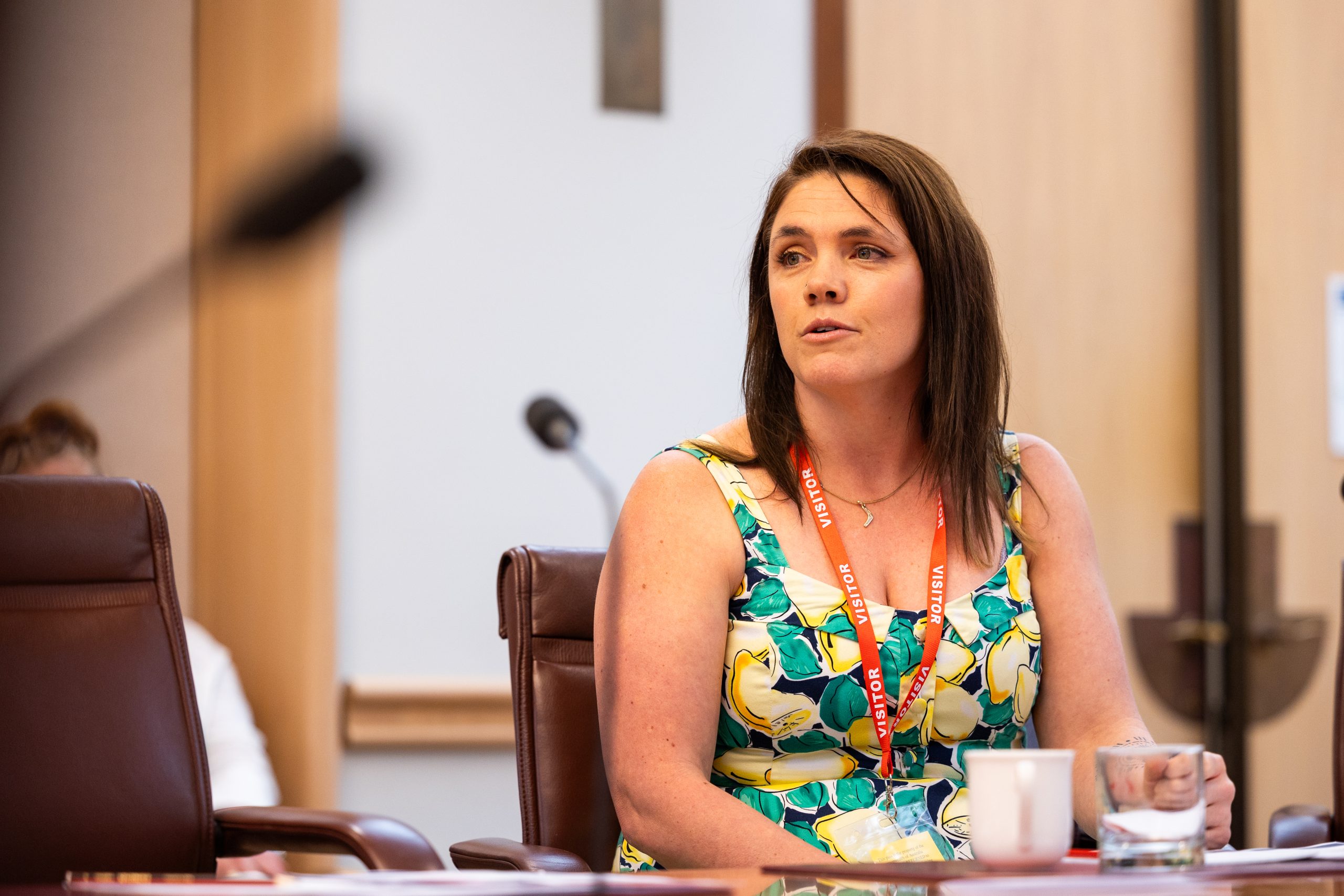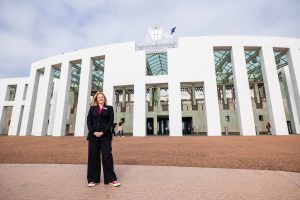I work mainly in the area of knowledge translation around Fetal Alcohol Spectrum Disorder (FASD).
The reality is that where there are people living with unrecognised and unsupported FASD, there is often violence too, regardless of your identity, culture or skin colour.
For Aboriginal Australians, we cannot talk about violence or alcohol without discussing the backdrop in which it sits – colonisation – and its ongoing and insidious impacts.
Violence was introduced to this country, and the cruelest kinds of violence were perpetrated against our bodies, minds and spirits.
You only need to look at what has been inflicted upon these lands and waters to see to understand that Western culture itself has an issue with violence.
We’re raising generation after generation saturated in violence.
Children are being saturated in violence. Children aren’t born violent.
This is something we learn. This is something we internalise.
And where there is violence, there is trauma. The alcohol industry knows all too well that there are cycles of profit to be made from cycles of trauma.
And so, how do we cope with the disturbance that trauma creates in our beings? For many people, alcohol is used to soothe the deep and violent pain they carry.
All too often, the self-soothing role that alcohol is playing creates a fertile ground for internalised violence to be externalised. Here we witness cycles of violence and trauma not just perpetuated but exacerbated.
Our people understand that ending the cycle of violence requires a holistic, family-centred approach to healing.
These holistic and healing-informed approaches often underpin community-led programs, which is why these initiatives are shown time and again to be so effective.
An example of this is in Western Australia’s Fitzroy Valley.
June Oscar AO, Emily Carter AM and many other incredible leaders of the Fitzroy Crossing community came together in solidarity to address alcohol harm and the unprecedented levels of suicide in their community.
In doing so, bring healing-informed solutions to unrecognised and therefore unsupported FASD.
Solutions that were the first of their kind in Australia continue to be incredibly successful in supporting the community and overcoming alcohol harm.
However, the community needed to and, importantly, govern this work. Community needed to have the authority and power to say who should be involved and how they should be involved.
The community also needed serious investment by government without being micromanaged.
The Fitzroy Valley community were meaningfully supported to implement their own solutions which enabled the strengths of our Sovereign culture to underpin a healing informed approach.
Healing is a holistic process that requires wraparound services to support the diverse and often unmet needs of the community.
The Fitzroy Crossing community built a foundation of strong, collaborative relationships with social services, police, lawyers, clinicians, schools, businesses and more.
This coordinated approach that prioritised relationships meant holistic support was available to community members, regardless of whether there was a diagnosis of FASD or not.
However, there have been many times that the community has had to do this with minimal resources or support.
Despite the ever-changing governments and inconsistent funding, many communities like Fitzroy Crossing are actively doing what we can to care for and support our families and community.
Such is the strength of Aboriginal culture and peoples.
Fitzroy Crossing offers one of many examples where a community-developed holistic and healing-informed approach brought real and sustained change.
I’ll finish by noting that only those with lived and living experience can tell you what the truth of their reality is.
However, truth and trust go hand in hand.
If we prioritise building trust and deeply listening to the voices and truth of those with lived and living experience, we have the opportunity to heal and reconstruct healthy, safe and flourishing societies.
This blog has been adapted from a speech Nicole gave during a FARE-hosted webinar on alcohol and gendered violence in September. You can watch her full speech here.







